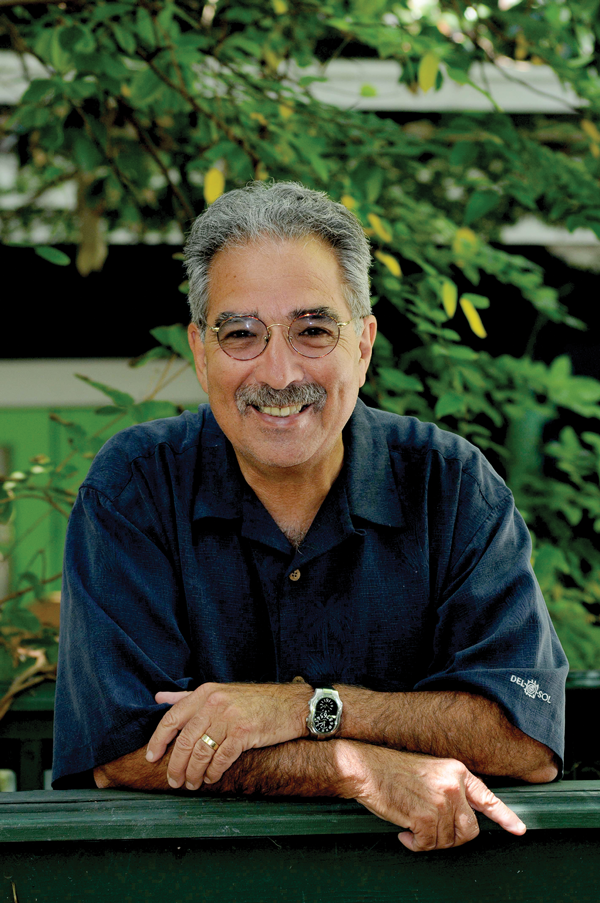10 Tools for Coping with Stress
When You or a Loved One Has Cancer
by William Penzer, PhD
Let me be blunt. I am seventy-three-and-a-half years old. In 2005, when my 31-year-old daughter was diagnosed with breast cancer, I came undone. I was flooded with stress and anxiety for the better part of a year. The aftershocks lasted a couple more. And I am a skilled psychologist who is used to helping people through difficult journeys. It was undeniably the very worst experience of my life.
The place I dub Cancerville packs a wallop like no place I’ve ever been and no experience I’ve ever had. Thank goodness our daughter is a strong survivor, enjoying raising the daughter her doctors predicted she would never
conceive because of the harsh chemo she endured.
Hope springs eternal, but we need to be able to clear our minds to see past the fears and tears that can so easily block our vision, dampen our spirits, and wreak havoc on our thoughts. Here are 10 tools I used to try to stabilize the tidal wave of worries and pressures that flew at me like a fierce and raging tsunami:
1. Journaling
I share this first because for me it was numero uno. Get yourself a six-pack of notepads and go at it. Say whatever you want in whatever voice fits your mood. What you write in your journal stays in your journal. I must have filled dozens of notepads, which thankfully now I can’t find. They were my scream in the night to vent my turbocharged emotions and curse the fates that hurt my daughter.
2. Laughter
Cancer is no laughing matter, but laughing matters a great deal in Cancerville. Laugh at all the silliness that you encounter. Watch sitcoms and funny movies. Self-deprecating humor can help ease the tensions that surround and abound. The more you laugh, the less you will cry. Of that I am quite sure.
3. Autogenic Relaxation
For whatever reasons, tightening and relaxing each muscle group can help create calm, relaxed, alpha-based feelings for both body and mind. You can find many resources online that present this helpful tool. The more you practice, the more you build a relaxation muscle to counterbalance the anxiety muscle that just about all of us seem to unfortunately develop naturally.
4. Distraction
The Cancerville focus can quickly become intense. Periodically take a breath and a break and do something that shuts down your cancer-focused mind and switches the channel to something lighter. As long as it’s not harmful or
illegal, whatever distracts you is fine.
Periodically take a breath and a break and do something that shuts down your cancer-focused mind and switches the channel to something lighter.
5. Yoga
As the popularity of yoga has soared in recent years, so has the research showing its many health benefits for both cancer prevention and cancer recovery. Once the haven of aging hippies, yoga has become popular with the masses, and it is now offered in many cancer centers around the country. Check with your doctors to see which practices are safe for you.
6. Guided Imagery
Our minds have the unique ability to allow us to journey to pleasant places without leaving our homes. Take yourself to a peaceful, pleasant, and calming place as often as you like. Maybe it is visiting Grandma’s house in days gone by, walking along the beach, taking in a country scene, or really anyplace you would rather be than Cancerville. You may be stuck there for the moment physically, but you can mentally transport yourself to other places from time to time.
7. Fantasy
Use your mind to envision a positive moment in the future. Enjoy a mental cruise vacation, or picture yourself helping
others cope better with cancer. See yourself getting past this difficult time and using your experience to grow, while also imagining the good things that may be soon to come. Picturing yourself in that happy space can help to lighten your load.
8. Meditation
Though people often like to joke about how meditation is just a bunch of sitting around doing nothing, it truly is a lovely way to relax. Focusing on your breathing can help you detach from your world, get out of Cancerville for a while, and find peace of mind.
9. Creativity
Writing prose or poems, drawing, painting, sculpting, and other creative endeavors can help unleash your emotions while distracting you in an almost meditative way. Please don’t say, “I’m not good at that kind of stuff.” No one is grading you. A poet laureate I will never be, but during difficult times, I find it helpful to write poems.
10. Mindfulness
Though mindfulness has become the buzzword of the day, it really is a simple, but powerful, tool that helps us relax
and de-stress. All it requires is that you focus on inner sensations, or outer sounds and images. For example, how does the soap feel on your body when you shower, and what feelings occur on your skin when you rinse? How does the music coming from your headphones sound, and how do those headphones feel on your head or in your ears? Chew your food slowly and pay attention to the feelings in your mouth and on your tongue. Focusing on the stimuli that surround you can help you leave your worrisome world for just a bit and tune in to the little things we often neglect.
When you are dealing with cancer as a patient (my term is survivor) or as a caregiver (my term is heart and soul
giver), leaving your Cancerville world for just a bit can be very helpful in maintaining your balance. Try any or all of the tools above to see what works best for you, and then stay with it throughout your Cancerville journey.

Dr. William Penzer is a psychologist in private practice in Ft. Lauderdale, FL, and a frequent speaker at cancer-related conferences. He has written three books and numerous articles to help people cope better with cancer.
To learn more about Dr. Penzer and his work, visit cancerville.com. You can also download audio samples of autogenic relaxation, guided imagery, and meditation practices.
This article was published in Coping® with Cancer magazine, January/February 2016.


